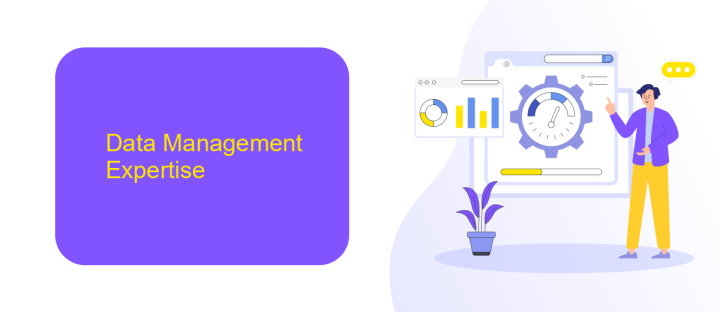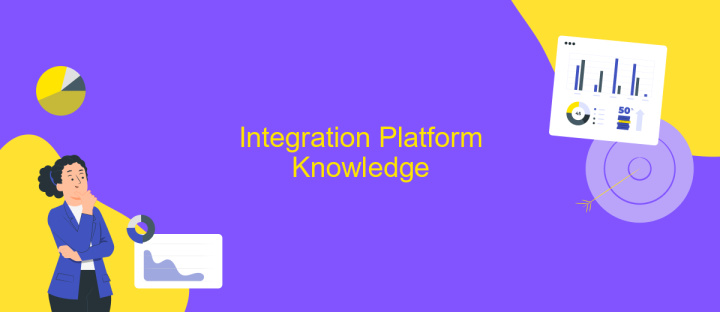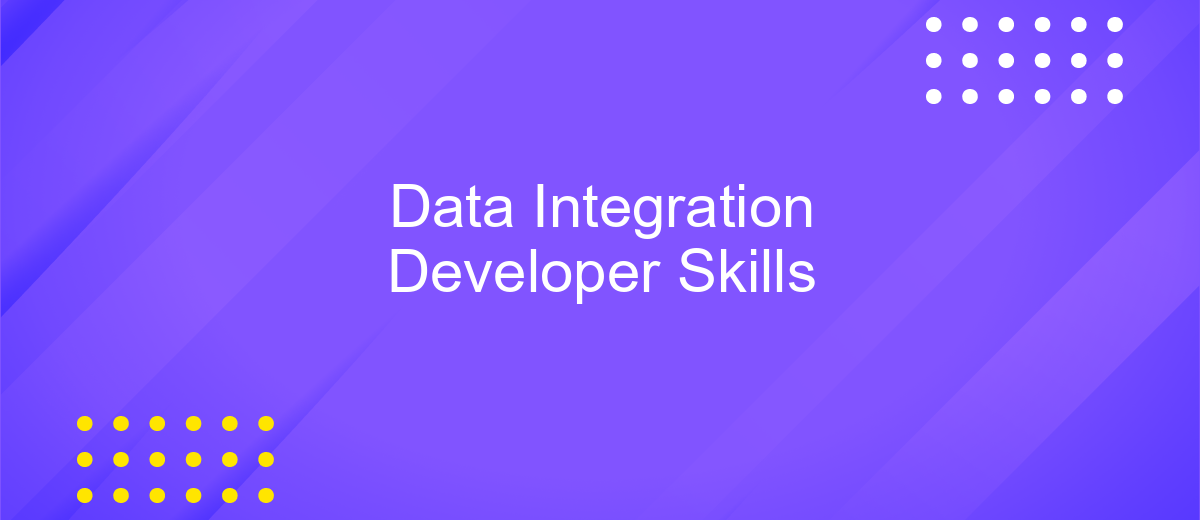Data Integration Developer Skills
In today's data-driven world, the role of a Data Integration Developer is crucial for seamless data flow across various systems and platforms. These professionals possess a unique blend of technical expertise and problem-solving skills, enabling organizations to harness and unify disparate data sources. This article explores the essential skills that make a successful Data Integration Developer.
Technical Skills
A Data Integration Developer must possess a robust set of technical skills to effectively manage and integrate data from various sources. These skills ensure seamless data flow and accurate data processing, which are critical for maintaining data integrity and supporting business intelligence initiatives.
- ETL Tools: Proficiency in tools like Informatica, Talend, and Apache Nifi for extracting, transforming, and loading data.
- SQL and Database Management: Strong knowledge of SQL and experience with databases such as MySQL, PostgreSQL, and Oracle.
- Programming Languages: Experience with languages like Python, Java, and Scala for data manipulation and automation.
- Data Warehousing: Understanding of data warehousing concepts and experience with platforms like Amazon Redshift and Google BigQuery.
- API Integration: Ability to work with RESTful and SOAP APIs for data exchange between systems.
- Data Modeling: Skills in designing and implementing data models to support data integration and analysis.
- Cloud Platforms: Familiarity with cloud services such as AWS, Azure, and Google Cloud for scalable data solutions.
These technical skills form the backbone of a Data Integration Developer's capabilities, enabling them to efficiently handle complex data environments and drive organizational success through effective data management.
Data Management Expertise

Data management expertise is crucial for any data integration developer. This skill involves understanding how to efficiently collect, store, and retrieve data across various systems. A proficient developer must be adept at designing and implementing robust database architectures, ensuring data quality, and maintaining data integrity. They should also be familiar with data warehousing concepts and be able to work with different data storage technologies such as SQL, NoSQL, and cloud-based solutions.
Moreover, expertise in data management includes the ability to set up and manage data integration tools and services. For instance, using platforms like ApiX-Drive can significantly streamline the process of integrating various applications and services. ApiX-Drive allows developers to automate data transfer between systems without extensive coding, ensuring seamless data flow and reducing the risk of errors. Mastery of such tools not only enhances efficiency but also ensures that data remains consistent and accessible across the organization.
Integration Platform Knowledge

Understanding integration platforms is fundamental for a Data Integration Developer. These platforms facilitate the seamless connection and communication between disparate systems, enabling efficient data flow and transformation. Mastering various integration platforms ensures that developers can choose the right tools and technologies for different integration scenarios, enhancing overall project success.
- Experience with Popular Platforms: Familiarity with leading integration platforms like MuleSoft, Dell Boomi, and Apache Camel is essential. Each platform offers unique features and capabilities that cater to different integration needs.
- API Management: Knowledge of API management tools and techniques is crucial. This includes understanding RESTful and SOAP APIs, as well as how to design, implement, and secure APIs effectively.
- Data Transformation and Mapping: Proficiency in data transformation and mapping tools, such as Talend or Informatica, is vital. These tools help in converting data from one format to another, ensuring compatibility between systems.
In summary, a Data Integration Developer must possess a comprehensive understanding of various integration platforms. This knowledge not only aids in selecting the appropriate tools but also ensures the efficient and secure integration of data across different systems. Continuous learning and staying updated with the latest platform advancements are key to maintaining expertise in this field.
Soft Skills

In the realm of Data Integration, technical prowess is undeniably crucial, but soft skills are equally important for a successful career. These skills enable a Data Integration Developer to navigate complex projects, collaborate with diverse teams, and effectively communicate insights and solutions.
Effective communication is at the core of any developer's role. Being able to articulate technical concepts to non-technical stakeholders, as well as understanding and interpreting business requirements, is essential. Moreover, the ability to listen and respond thoughtfully ensures that all team members are on the same page.
- Problem-solving: Quickly identifying issues and developing effective solutions.
- Adaptability: Being flexible and open to new methodologies and technologies.
- Teamwork: Collaborating efficiently with colleagues from various departments.
- Time management: Prioritizing tasks and meeting deadlines consistently.
- Attention to detail: Ensuring accuracy and quality in all deliverables.
In conclusion, while technical skills form the foundation of a Data Integration Developer's expertise, soft skills are what enable them to thrive in a dynamic and collaborative environment. Mastering these abilities will not only enhance personal performance but also contribute significantly to the success of projects and the organization as a whole.


Industry Knowledge
Industry knowledge is crucial for a Data Integration Developer, as it provides the foundational understanding necessary to navigate and optimize various systems and platforms. Familiarity with industry-specific data standards, compliance requirements, and best practices ensures that integrations are not only efficient but also secure and compliant. This knowledge enables developers to tailor solutions that meet the unique needs of different sectors, whether it be finance, healthcare, retail, or manufacturing.
In addition to general industry knowledge, proficiency with integration tools and platforms is essential. Services like ApiX-Drive, which facilitate seamless connections between various applications and databases, are invaluable. ApiX-Drive allows developers to automate workflows, synchronize data in real-time, and reduce manual intervention, thereby enhancing productivity and data accuracy. Understanding how to leverage such tools effectively can significantly streamline the integration process and improve overall system performance.
FAQ
What skills are essential for a Data Integration Developer?
How important is experience with cloud platforms for a Data Integration Developer?
What role do APIs play in data integration?
How can automation improve the data integration process?
What are some common challenges faced by Data Integration Developers?
Apix-Drive will help optimize business processes, save you from a lot of routine tasks and unnecessary costs for automation, attracting additional specialists. Try setting up a free test connection with ApiX-Drive and see for yourself. Now you have to think about where to invest the freed time and money!

